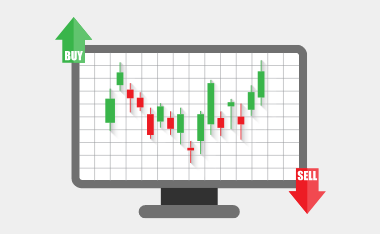Forex Trading Base Currency

Understanding the concept of forex trading base currency is essential to build a profitable sustainable trading income.
The forex trading base currency serves as the foundation for currency pairs.
It plays a crucial role in determining the value and profitability of trades.
In this comprehensive guide, we will explore the concept of base currency, its significance in forex trading, and how it influences trading decisions.
By understanding base currency, traders can effectively navigate the forex market and make better-educated trading decisions.
What is Forex Trading Base Currency?
In forex trading, currencies are always quoted in pairs, representing the exchange rate between two currencies.
The base currency is the first currency represented in a currency pair.
It serves as the basis for determining the pair’s value and represents the measurement unit.
For example, in the currency pair EUR/USD, the euro (EUR) is the base currency, and the U.S. dollar (USD) is the quote currency.
This means that the exchange rate indicates how much the quoted currency is worth in terms of the base currency.
If the EUR/USD pair is quoted at 1.1500, it means that 1 euro is equivalent to 1.1500 U.S. dollars.
Significance of the Forex Trading Base Currency
The choice of base currency has significant implications for forex traders. Here are some key aspects to consider:
Valuation of Currency Pairs
The base currency determines the valuation of currency pairs.
When the value of the base currency strengthens against the quote currency, the currency pair’s price rises.
Conversely, if the base currency’s value weakens, the currency pair’s price declines.
Understanding the dynamics of the base currency is crucial for interpreting the movements and trends of currency pairs.
Traders closely monitor economic indicators, geopolitical events, and market conditions that affect the value of the base currency, as these factors directly impact the profitability of trades.
Profit and Loss Calculation
The base currency is also essential for calculating profits and losses in forex trading.
The profit or loss is denominated in the base currency when entering a trade.
For example, suppose a trader buys 100,000 units of the EUR/USD currency pair, and the price moves 50 pips in their favour.
In that case, the profit is calculated in euros.
Understanding the base currency’s value and its fluctuations is crucial for accurately calculating profits and losses and managing risk in forex trading.
Trading Decision-Making
The choice of base currency can influence trading decisions.
Traders often select a base currency based on their trading strategy, market preferences, and knowledge of its economic fundamentals.
Some traders prefer to use their domestic currency as the base currency to understand its economic factors better and be more in tune with its market dynamics.
Others may choose a base currency that aligns with their trading goals, such as selecting a currency with high liquidity or a solid correlation to specific markets or commodities.
Determination of the Standard Forex Trading Base Currency in Major Currency Pairs
The establishment of standard base currencies in major currency pairs was a significant development in formulating the current forex trading system.
These base currencies were determined based on various factors, including historical significance, economic importance, and global trade relationships.
In this section, we will explore the reasons behind the selection of standard base currencies and their enduring relevance in the forex market.
Historical Significance
The determination of standard base currencies in major currency pairs can be traced back to the historical origins of forex trading.
When the modern forex market emerged, certain currencies had established themselves as dominant players in international trade and finance.
These currencies were historically significant and widely accepted as a medium of exchange.
For instance, the British pound (GBP) was crucial in global trade during the British Empire’s peak.
The pound sterling’s prominence in international commerce led to its selection as the base currency in the GBP/USD currency pair.
Similarly, the U.S. dollar (USD) gained recognition as a critical currency following World War II with the establishment of the Bretton Woods system.
This further solidified its position as a standard base currency.
Economic Importance
The selection of standard base currencies in major currency pairs also reflects the economic significance of certain countries.
The base currencies were chosen based on factors such as the size of the economy, stability, and openness to international trade.
For example, the euro (EUR) became a standard base currency due to the economic influence of the European Union and the Eurozone.
The Eurozone represents a large portion of the global economy and is home to several major financial centres.
The euro’s status as a base currency in currency pairs such as EUR/USD as well as the EUR/GBP reflects its economic importance and the European Union’s role as a major player in international trade.
Likewise, the Japanese yen (JPY) emerged as a standard base currency due to Japan’s economic prominence as one of the world’s largest economies.
Japan’s position as a major exporter and its participation in global financial markets contributed to the yen’s selection as a base currency in pairs such as USD/JPY.
Global Trade Relationships
Determining standard base currencies in major currency pairs also considered the global trade relationships between countries.
Currency pairs involving major economies with significant trade ties were formed based on the need for exchange rate stability and efficient trade facilitation.
For instance, the USD/CAD currency pair reflects the close economic relationship between the United States and Canada.
The United States and Canada share extensive trade links, making the U.S. and Canadian dollar (CAD) integral currencies in the North American trade landscape.
As a result, the USD/CAD pair became a major currency pair with the USD as the base currency.
Enduring Relevance
The selection of standard base currencies in major currency pairs has stood the test of time.
It remains relevant in the modern forex market.
Despite the evolution of the global economy and changes in economic power dynamics, these base currencies have maintained their importance due to their historical significance, economic stability, and global trade relationships.
The stability and liquidity of the selected base currencies contribute to their enduring relevance.
Traders rely on these currencies as a benchmark for measuring the value and performance of other currencies.
Additionally, these base currencies’ widespread acceptance and recognition in international transactions and financial markets have solidified their position as standard base currencies.
A Wrap-Up of Forex Trading Base Currency Determination
The determination of standard base currencies in major currency pairs was influenced by historical significance, economic importance, and global trade relationships.
The selection of these currencies reflects their prominence in international trade and finance, as well as their stability and liquidity.
Despite the changing dynamics of the global economy, these base currencies have retained their relevance and continue to play a crucial role in forex trading as benchmarks for evaluating currency value.
Forex Trading Base Currency Selection Strategies
When selecting a base currency, traders employ different strategies based on their trading objectives and market analysis. Here are a few common strategies:
Domestic Currency Bias
Some traders prefer to use their domestic currency as the base currency.
This approach allows them to have a deeper understanding of their own currency’s economic factors, such as interest rates, inflation, and central bank policies.
By focusing on their domestic currency, traders can potentially leverage their knowledge and gain a competitive edge in the market.
Liquidity and Volatility
Traders may choose a base currency based on liquidity and volatility considerations.
Currencies with high liquidity, such as the U.S. dollar, euro, Japanese yen, and British pound, are popular choices as base currencies.
High liquidity ensures tighter spreads, lower transaction costs, and improved trade execution.
Volatility can also influence base currency selection.
Traders who prefer more volatile markets may choose base currencies associated with countries experiencing significant economic events or geopolitical developments.
Correlation of a Forex Trading Base Currency to Other Markets
Some traders select a base currency based on its correlation to other markets or commodities.
For example, if a trader focuses on trading oil, they may choose a base currency that strongly correlates to the price of oil, such as the Canadian dollar or the Norwegian krone.
By selecting a base currency that aligns with their chosen market, traders can potentially benefit from Intermarket analysis and make more informed trading decisions.
The Final Word on Forex Trading Base Currency
Understanding the concept of base currency is fundamental to forex trading.
The base currency is the foundation for currency pairs, influencing their valuation, profit calculation, and trading decisions.
By carefully considering base currency selection strategies and staying informed about the economic factors affecting the base currency, traders can enhance their ability to analyse the market, make educated trading choices, and potentially succeed in the forex trading arena.
More Information
For more trading term general definitions, visit our A to Z of Forex Trading
To look at these concepts in action, please visit our sister site, Latest Forex Rates
What to do Next
If you have more questions or need further guidance, don’t hesitate to reach out to us at The Trading Coach International for personalized coaching and support.
If you would like to learn more about trading forex profitably and what steps you can take next to get on the right track to build your Lifestyle Income From Trading, you can book an no obligation, Free Strategy Call with our Lead Trading Coach by clicking on THIS LINK
Disclaimer
The information, strategies, techniques and approaches discussed in this article are for general information purposes only and studies of potential options. The Trading Coach International does not necessarily use, promote nor recommend any strategies discussed in this article. The information in this article may not be suitable for your personal financial circumstances and you should seek independent qualified financial advice before implementing any financial strategy. The Trading Coach International is not a financial advisor and does not have AFS registration.




















